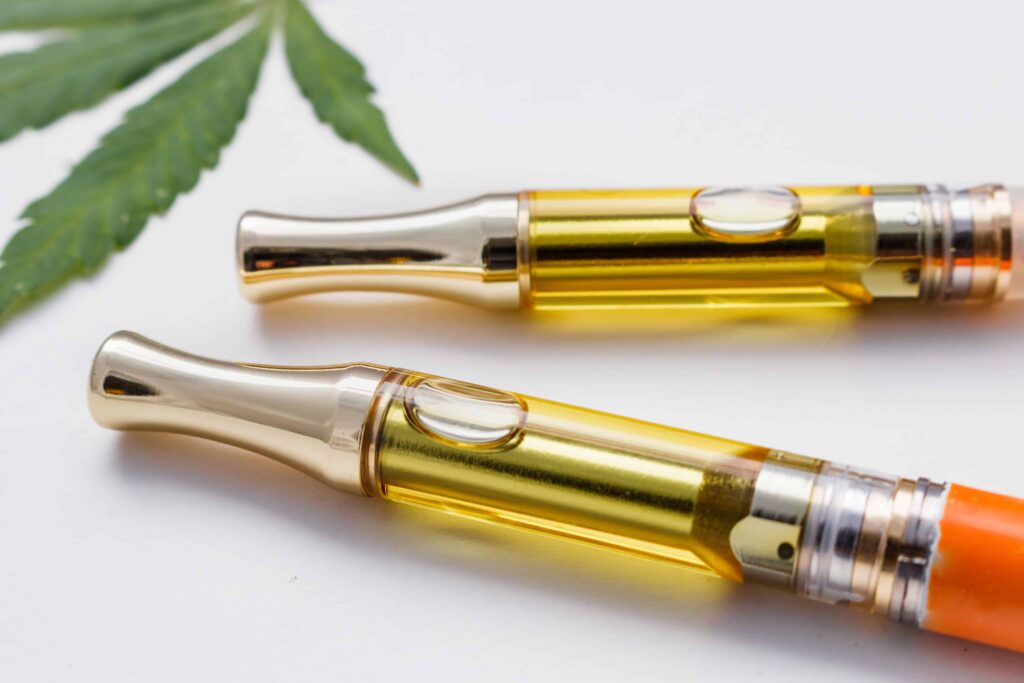
A Maryland judge has temporarily suspended portions of the state’s marijuana legalization statute prohibiting the sale of hemp-derived products with intoxicating cannabinoids. The judge’s order allows hemp and CBD shops to resume selling the products while a lawsuit challenging the state’s cannabis legalization law continues.
The legal action was filed in July by a group of business owners and the Maryland Hemp Coalition challenging provisions of the state’s marijuana legalization law that only allow businesses approved by state cannabis regulators to sell products that contain THC. The law also restricts sales of other intoxicating cannabinoids derived from hemp, including delta-8 THC and delta-10 THC, which have been sold in Maryland by hemp businesses for years following the legalization of hemp with the 2018 Farm Bill.
The named defendants in the case are state Governor Wes Moore, the Maryland Cannabis Administration and the Maryland Alcohol, Tobacco, and Cannabis Commission. Attorneys for the defendants have filed motions to dismiss the lawsuit but have not succeeded.
The plaintiffs argue in the suit that the law wrongfully requires them to either obtain a cannabis business license, which is subject to eligibility requirements, stop selling products they have been selling for years, or close their businesses. The plaintiffs allege that the law violates the Maryland Constitution’s equal protection and anti-monopoly clauses by excluding them from the state’s regulated cannabis market.
Judge’s Order Allows Sales To Resume
In an order handed down on Thursday, Washington County Circuit Court Judge Brett R. Wilson said the restrictions on hemp products with intoxicating hemp products would “irreparably harm” the plaintiffs, some of whom have had to close their businesses selling hemp-derived cannabinoid products. Wilson said his order “is not contrary to the public interest.”
The order allows the plaintiffs to temporarily resume selling products with hemp-derived cannabinoids while the lawsuit continues. After Wilson handed down the order, state officials said it would hurt efforts to make products containing THC, including hemp-derived THC, safe for consumers.
“The Administration was disappointed to learn of the preliminary decision in Washington County Circuit Court allowing for the continued sale of unregulated, untested, and intoxicating hemp-derived products,” William Tilburg, the director of the Maryland Cannabis Administration, said in a statement from the agency.
Leaders in the state legislature also expressed dissatisfaction with the judge’s order and predicted that the lawsuit would not prevail.
“We are disappointed in the Washington County Circuit Court’s initial order regarding Maryland’s landmark recreational adult-use cannabis legislation,” House Speaker Adrienne A. Jones and Senate President Bill Ferguson said in a joint statement. “We remain confident that the law is legal.”
Plaintiffs Welcome Court Order
The judge’s order was welcomed by the plaintiffs including business owners who had temporarily closed their shops to comply with Maryland’s cannabis legalization statute.
“We’re happy that, for now, we’re back in business,” said Nevin Young, the plaintiffs’ attorney.
“This is really about the state wanting sole control — through a very limited number of retailers — of the market for all THC products,” he added.
Young said that the plaintiffs had provided evidence in court to show that the products they sell do not pose a risk to consumers, a claim frequently made by the state’s cannabis regulators.
“They brought products to the hearing with them that are tested in independent laboratories that actually exceed the standards that the state of Maryland requires for the products sold in the state,” he said.
“They have basically been shut out. Not because their products are dangerous, but because their products are undesired,” Young added.
Nicholas Patrick, one of the plaintiffs in the case, said that he had to close his three Embrace Wellness Centers because of the restrictions. Together, the three shops were the heart of a business that generated more than $1.5 million per year and employed several workers.
“I was inches away from bankruptcy,” Patrick told the Washington Post on Thursday before a coalition of plaintiffs met to discuss their next steps. “Hopefully, I can get my business up and running and take care of my family.”
Patrick said that revenue at his business declined by 74% after Maryland’s cannabis legalization statute went into effect. He was eventually able to convert one of his locations to a smoke shop, but he has had to permanently close the other two retail operations and he was forced to lay off four employees.
“The human cost for me was the worst cost,” Patrick said. “We had to let them go, and it broke my heart in a million pieces. … I don’t even have the financial means to get them back opened up. I have no money left.”
Read full article on High Times

